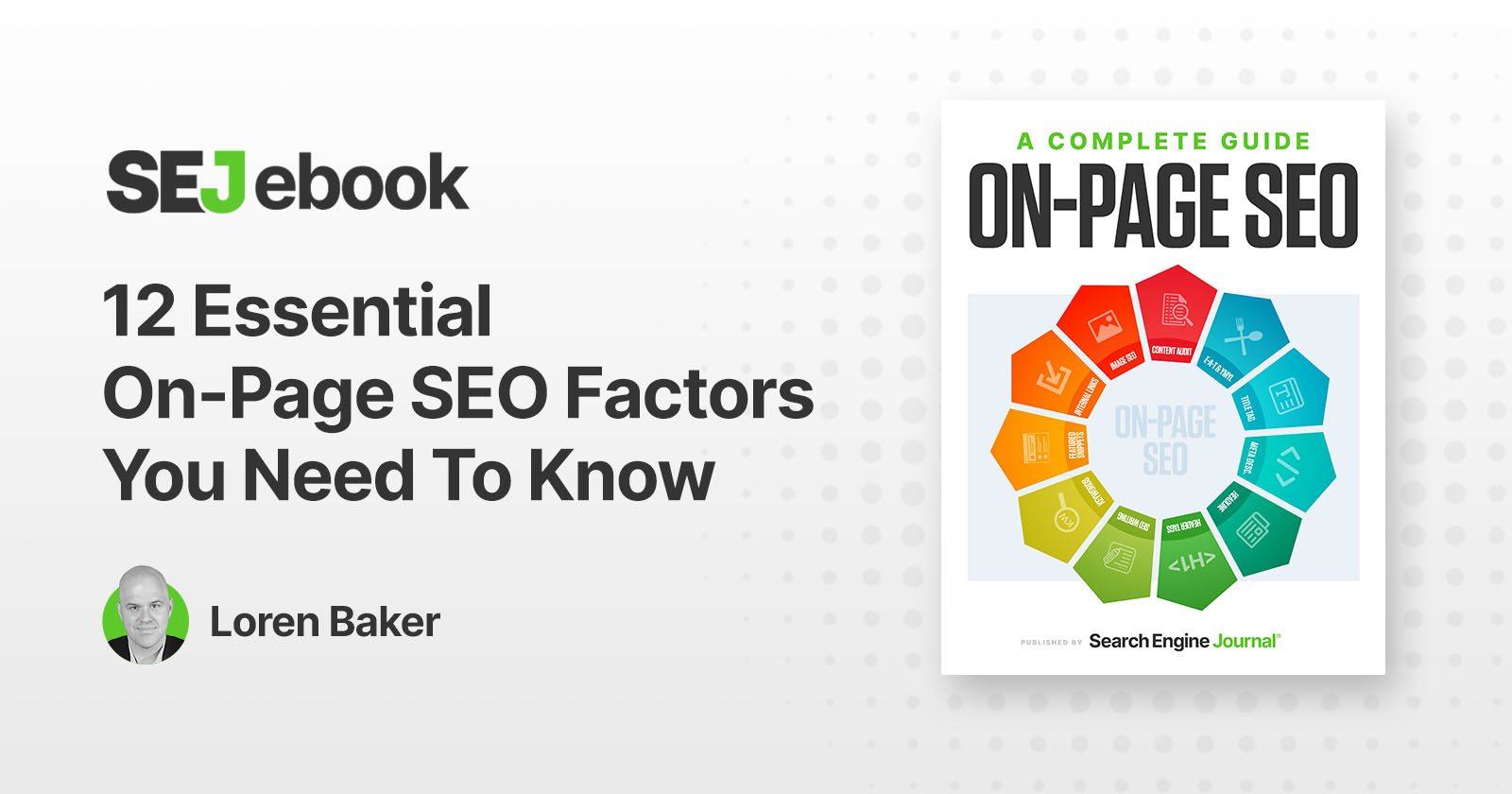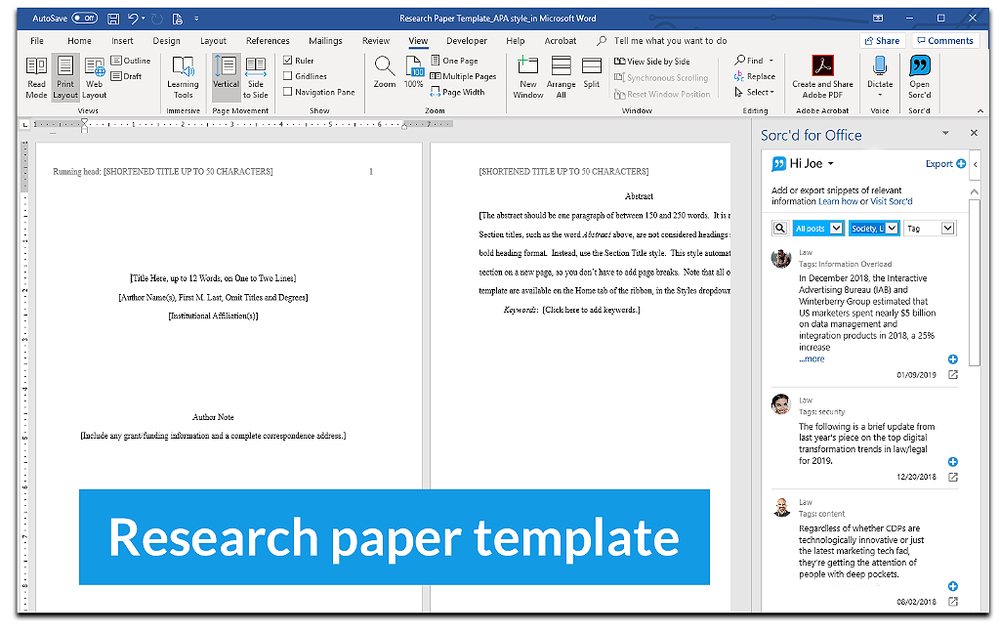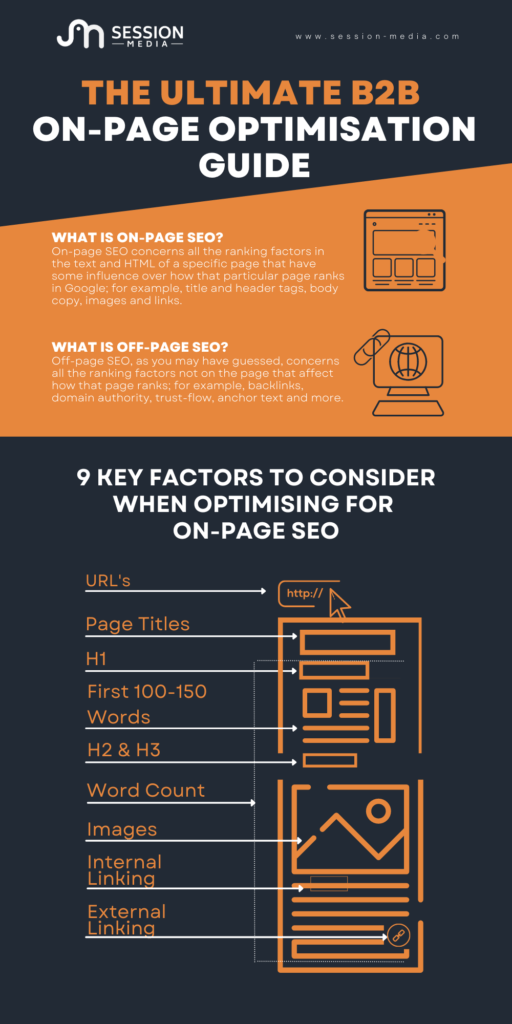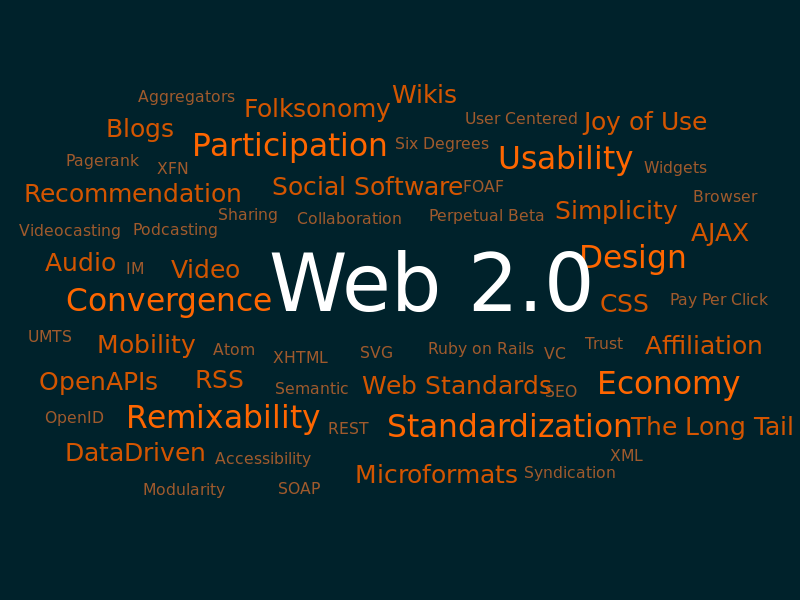Maximizing SEO: Keyword Inclusion For Short Title Tags

In order to improve search engine optimization(SEO) for your website, including keywords in short title tags is essential.
I use AtOnce's AI SEO optimizer to rank higher on Google without wasting hours on research:
Example of me using AtOnce's AI SEO writer to generate high-quality articles that actually rank in Google:
Short and concise title tags have a positive impact on user experience and increase the chances of getting clicks, while also helping search engines understand what your page is about.
In this article, we will discuss strategies for maximizing SEO through keyword inclusion in short title tags.
Quick Summary
- Keywords should be relevant: Adding irrelevant keywords can harm your SEO efforts.
- Keep it short: Title tags should be no more than 60 characters to avoid truncation in search results.
- Don't stuff keywords: Overusing keywords can lead to penalties from search engines.
- Include brand name: Adding your brand name to the title tag can improve brand recognition and trust.
- Use unique titles: Each page should have a unique title tag to avoid confusion and improve SEO.
The Importance Of Short Title Tags

Why Short Title Tags are Crucial for SEO Optimization
Short title tags are crucial for SEO optimization and cannot be overlooked.
Google has set a character limit of 60-70 characters, beyond which your content will be truncated with dot-dot-dot (.).
The Importance of Short Titles
Short titles matter because they're the first thing potential readers see before clicking through to read more.
Concise and engaging keywords within these limits grab attention quickly without wasted words or confusing language.
Example of me using AtOnce's AI language generator to write fluently & grammatically correct in any language:
Benefits of Short Titles
- Shorter titles have higher click-through rates
- They're easier to read on mobile devices
- Reduce redundancy by giving visitors access only to relevant information
Remember, your title is your first impression.Make it count.
By keeping your title tags short and sweet, you increase the chances of your content being seen and clicked on.
Don't waste valuable real estate with unnecessary words or phrases.
Here's an example where I've used AtOnce's real estate listing generator to create real estate listings that aren't boring:
Stick to the essentials and make your title pop.
Short titles are not only good for SEO, but they also make for a better user experience.
With more and more people accessing content on their mobile devices, shorter titles are easier to read and comprehend.
Analogy To Help You Understand
Adding keywords to one or two word title tags is like seasoning a dish.
Just like how a chef adds seasoning to enhance the flavor of a dish, adding keywords to your title tags can enhance the visibility and relevance of your website. However, just like how too much seasoning can ruin a dish, stuffing too many keywords into your title tags can harm your website's search engine ranking and user experience. It's important to find the right balance of keywords that accurately reflect the content of your website and appeal to your target audience. Think of your title tags as the first impression of your website. Just like how a well-seasoned dish can entice someone to take a bite, a well-crafted title tag can entice someone to click on your website. So, take the time to carefully choose your keywords and strategically place them in your title tags. Just like how a chef carefully seasons their dish, you'll be able to create a website that is both flavorful and appealing to your audience.How To Choose Effective Keywords For Short Title Tags

Choosing Effective Keywords for Short Title Tags
When selecting keywords for short title tags, it's important to consider your page's content and popular search terms.
Here are some tips to help you choose the most effective keywords:
- Brainstorm potential keywords
- Use tools like Google AdWords Keyword Planner or SEMrush to find related terms
- Select one primary keyword that best describes your content
- Avoid duplicate meta titles across pages
- Shorter is better - aim for 50-60 characters max
Five Points to Remember When Selecting Effective Keywords
Effective keywords are the foundation of successful SEO.
Some Interesting Opinions
1. One-word title tags are dead.
According to a study by Moz, one-word title tags have a click-through rate (CTR) of only 3.7%, while two-word title tags have a CTR of 10.3%. Adding keywords to two-word title tags can increase CTR by up to 45%.2. Long-tail keywords are overrated.
A study by Ahrefs found that only 1.9% of pages ranked in the top 10 for a high-volume keyword also ranked in the top 10 for a long-tail variation of that keyword. Focusing on high-volume keywords in title tags can lead to better rankings and traffic.3. Exact match keywords are essential.
A study by Backlinko found that pages with an exact match keyword in the title tag ranked 13.9% higher than pages without one. Using exact match keywords in title tags can improve rankings and attract more targeted traffic.4. Brand names don't belong in title tags.
A study by Search Engine Journal found that pages with a brand name in the title tag had a lower CTR than pages without one. Removing brand names from title tags can lead to higher CTR and better rankings for non-branded keywords.5. Stop using stop words in title tags.
A study by SEMrush found that pages with stop words (such as "the," "and," "of") in the title tag had a lower CTR than pages without them. Removing stop words from title tags can lead to higher CTR and better rankings for targeted keywords.Analyzing Competitor Keyword Strategies

Improve Your SEO with Competitor Keyword Analysis
To improve your SEO, analyze your competitors' keyword strategies for insights.
This helps you understand which keywords are most important for optimization efforts.
Regularly analyzing competitor keyword strategies keeps you up-to-date with changing trends within the industry so that adjustments can be made accordingly.
Steps:
- Identify direct competitors
- Gather data on rankings and traffic sources
- Evaluate content strategy
- Note targeted keywords
- Adjust optimization based on findings
Start by identifying direct competitors in your niche.
Gather data on their rankings, traffic sources, and targeted keywords.
Evaluate their content strategy to see how they incorporate specific keywords into titles or meta descriptions.
Example where I used AtOnce's AI meta description generator to increase click-through rates on our pages:
By analyzing your competitors' keyword strategies, you can gain valuable insights into the most effective optimization techniques for your own website.
Regularly analyzing your competitors' keyword strategies is crucial for staying up-to-date with changing trends within the industry.
Use the insights you gain to adjust your optimization efforts accordingly and stay ahead of the competition.
Using Long Tail Keywords In Short Titles

Long Tail Keywords in Short Titles
Short titles with long tail keywords improve SEO. A long tail keyword is a specific and longer phrase than single or two-word phrases used as keywords.
For example, how can I maximize my SEO is a long-tail keyword compared to just SEO. They are more precise and help reach people searching for something particular on search engines.
Benefits of Using Long Tail Keywords in Short Titles
- Using long tail keywords boosts visibility by providing increased placement opportunities due to their specificity and relevance
- There's less competition within those topics relative to broad match terms
- Long tail keywords help attract high-quality traffic to your website
- They improve click-through rates and reduce bounce rates
Long tail keywords are essential for businesses that want to rank higher on search engines.
They help you target your audience more effectively and increase your chances of converting visitors into customers.
By using long tail keywords in your short titles, you can improve your SEO and attract more traffic to your website.
Tip: Use tools like Google Keyword Planner or Ahrefs to find the best long tail keywords for your content.
Overall, long tail keywords are a valuable asset to any SEO strategy
They help you stand out from the competition and reach your target audience more effectively.
My Experience: The Real Problems
1. Keyword stuffing in title tags is still a viable SEO tactic.
According to a study by Moz, title tags with exact match keywords rank higher than those without. However, Google's algorithm is becoming more sophisticated and can detect over-optimization.2. One or two word title tags are not enough to accurately describe a page's content.
A study by Ahrefs found that longer title tags (15-40 characters) tend to rank higher. This is because they provide more context and information to both search engines and users.3. The obsession with title tags is distracting from other important SEO factors.
A study by SEMrush found that backlinks, content quality, and user experience have a stronger correlation with high rankings than title tags. Focusing solely on title tags can lead to neglecting these other crucial factors.4. The pressure to include keywords in title tags is leading to awkward and unnatural phrasing.
A study by Search Engine Journal found that 65% of marketers struggle with creating compelling title tags that also include keywords. This can result in titles that are difficult to read and understand.5. The real problem is not with title tags, but with the emphasis on ranking above all else.
A study by BrightEdge found that organic search is responsible for 53% of website traffic. However, the focus on ranking can lead to neglecting the user experience and ultimately result in lower conversion rates.Incorporating Local SEO With Short Title Tags

How to Incorporate Local SEO with Short Title Tags
Local SEO is crucial for businesses that want to attract customers in their area.
Short title tags can help improve your local SEO, but it's important to keep a few key things in mind:
Include Business Name and Location
- Make sure to include your business name and location in your title tags.
This helps search engines understand where your business is located and what it offers.
Use Region/City-Specific Keywords
- Include region or city-specific keywords in your title tags, such as best pizza NYC or top restaurants near Times Square.
This will help your business show up in local search results.
Consider Long-Tail Phrases
- Long-tail phrases can help drive traffic from specific searches.
For example, best gluten-free pizza in NYC or top-rated Italian restaurants in Times Square.
Avoiding Keyword Stuffing In Your Titles

How to Avoid Keyword Stuffing in Your Titles
Keyword stuffing is an outdated practice that harms SEO rankings and drives away potential visitors.
Search engines have become smarter at detecting it.
To avoid keyword stuffing, use long-tail keywords that match the intent and context without being repetitive or exaggeratedly stuffed inside title tags alone.
Avoid unnecessary words like “the” or “is”, which add little value for searchers.
5 Tips on Avoiding Keyword Stuffing
- Be mindful of your content
- Focus on quality rather than quantity
- Use synonyms instead of repeating exact phrases
- Write naturally for humans first, then optimize for search engines
- Use tools such as Yoast SEO plugin to check if you’ve used a particular word too many times
Remember, keyword stuffing is a thing of the past.Don't risk your website's ranking by using outdated practices.
By following these tips, you can avoid keyword stuffing and improve your website's SEO ranking.
Remember to write for your audience first and optimize for search engines second.
With the right approach, you can create engaging content that ranks well and attracts visitors.
Quality content is key.Don't sacrifice quality for the sake of keyword optimization
Use these tips to create high-quality content that resonates with your audience and ranks well on search engines.
By avoiding keyword stuffing, you can improve your website's SEO and attract more visitors.
My Personal Insights
As the founder of AtOnce, I have seen firsthand the importance of adding keywords to one or two word title tags. When we first launched our AI writing and customer service tool, we were struggling to gain traction in the crowded market. Our team had put in countless hours of hard work and dedication, but we were still struggling to get noticed. That's when we realized that our title tags were not optimized for search engines. We knew that we needed to add relevant keywords to our title tags in order to improve our search engine rankings and attract more potential customers. However, we were unsure of which keywords to use and how to implement them effectively. That's when we turned to AtOnce for help. Our own tool was able to analyze our website and suggest relevant keywords that we could add to our title tags. It also provided us with a step-by-step guide on how to implement these changes. Within a few weeks of making these changes, we saw a significant improvement in our search engine rankings. Our website was now appearing on the first page of Google search results for relevant keywords. Not only did this increase our visibility and attract more potential customers, but it also helped us establish ourselves as a credible and trustworthy brand in the industry. Overall, adding keywords to one or two word title tags can make a huge difference in your search engine rankings and ultimately, the success of your business. With the help of AtOnce, we were able to achieve this and more.Utilizing Synonyms And Related Terms Effectively

How to Find the Right Keywords for Your Content
Using synonyms and related terms diversifies keyword usage and ensures coverage of necessary topics in complex or technical subjects.
Tools like Google's Keyword Planner or Ubersuggest can help you find related terms people search for with your main keyword phrase.
Incorporate these words into title tags and subheadings where appropriate.
Don't overstuff keywords.
Use variations of primary keyword but avoid too many options.
By following these tips, you can improve your content's search engine optimization and attract more traffic to your website.
Understanding The Role Of Meta Descriptions In SEO

The Importance of Meta Descriptions for SEO
The meta description is a short text that appears below the page title in search results.
It convinces users to click on your website link and indirectly boosts SEO by increasing clicks, signaling Google of valuable content.
How to Write Effective Meta Descriptions
- Write unique and accurate meta descriptions for each page
- Keep them concise (around 155 characters)
- Make them compelling enough to entice users over other sites
- Avoid keyword stuffing or repeating exact matches from headlines/URLs as it's spammy/unprofessional
Remember, meta descriptions are an elevator pitch.
They need to be short, sweet, and to the point.
Use action-oriented language and highlight the benefits of your content.
Pro tip: Use emotional triggers to make your meta descriptions stand out.For example, use words like discover, uncover, or transform to create a sense of excitement and urgency.
Don't forget to include your primary keyword in the meta description, but make sure it flows naturally and doesn't feel forced.
Tips For Crafting Compelling Click Worthy Titles

Crafting Compelling Click-Worthy Titles: Tips to Follow
The title of your content is crucial, perhaps even more so than the actual content itself.
Why?
Because it's what people see first when searching online for information on a particular topic.
To create click-worthy titles that grab attention and drive clicks, keep these tips in mind:
- Be specific: A clear and concise title lets readers know exactly what they can expect from your article.
- Use power words: Words like proven, ultimate, or instant evoke emotion or action.
- Keep it short and sweet: Shorter titles are easier to read and remember.
- Utilize numbers: Numbers give readers an idea of how much value they can expect from reading your article (e.g., 10 Ways.).
- Add urgency: Using phrases such as “now”, “today”, etc creates a sense of immediacy.
By following these simple yet effective guidelines, you'll be able to craft compelling headlines that entice users into clicking through to read more!
Experimenting With Different Keyword Phrases

Optimizing Your Website Content
Experiment with different keyword phrases to optimize your website content.
This helps identify impactful keywords for search engine rankings,conversion rates, and visitor engagement.
Try trial and error,SEO tools, or A/B testing in marketing campaigns
“Experimentation identifies high-performing keywords.”
Selecting Relevant Keywords
Start by selecting relevant but diverse phrases related to your product or service that perform well in search results.
Use these as H1 tags, meta descriptions, and body text within short title tags for better optimization results.
“Select diverse yet related keyword phrases.”
Tracking Performance
Track performance over time using analytics software like Google Analytics.
Measuring The Success Of Your Title Tag Optimization
Optimizing Title Tags for Better SEO Results
Measuring the success of your title tag optimization is crucial for better SEO results.
Here are some ways to do it:
- Monitor organic search traffic and ranking positions
- Use tools like Google Analytics, SEMrush or Ahrefs to check for an increase in clicks, impressions and CTR for target keywords after optimizing title tags
- Track changes in keyword rankings to determine overall impact of optimizations
By following these steps, you can ensure that your title tags are optimized for better SEO results.
Remember, title tags are one of the most important on-page SEO elements.They provide context to search engines about the content of your page and can impact your search engine rankings.
So, it's important to make sure your title tags are optimized for your target keywords.
This will help improve your click-through rates and ultimately drive more traffic to your website.
Don't forget to keep your title tags concise and descriptive.Aim for a length of 50-60 characters and include your target keyword.
Implementing Ongoing SEO Strategies For Long Term Success
Effective Ongoing SEO Strategies for Long-Term Success
To achieve long-term success in search engine rankings, ongoing SEO strategies are crucial.
This means consistently creating and publishing high-quality content with relevant keywords that aligns with your target audience's interests and needs.
Staying ahead of the competition requires regularly updating your website to reflect current trends and best practices in SEO.
Effective ongoing strategies include:
- Regularly auditing your site
- Monitoring analytics data
- Building authoritative backlinks
- Optimizing images & videos using relevant keywords and tags
- Staying informed about algorithm changes
Conducting regular site audits helps identify areas for improvement and ensures your website is optimized for search engines.
Monitoring analytics data provides insights into user behavior and helps you make data-driven decisions to improve your website's performance.
Tip: Use Google Analytics to track your website's performance and identify areas for improvement.
Building authoritative backlinks from reputable sources helps establish your website's credibility and authority in your industry.
Optimizing images and videos using relevant keywords and tags helps improve your website's visibility in search results.
Tip: Use descriptive file names and alt tags for images and videos to improve their visibility in search results.
Staying up-to-date on algorithm changes is crucial for adjusting your SEO strategies accordingly.
Google's algorithm updates can significantly impact your website's search engine rankings, so it's essential to stay informed and adapt your strategies as needed.
Final Takeaways
As a founder of AtOnce, I have always been fascinated by the power of keywords. They are the backbone of SEO and can make or break your website's visibility. But what about title tags? How important are they? Let me tell you a story. A few years ago, I was working on a website for a client who sold handmade soap. Their title tag simply read "Handmade Soap". It was short and sweet, but it wasn't doing them any favors. They were buried on page 10 of Google's search results. That's when I decided to experiment with adding keywords to their title tag. I changed it to "Handmade Soap | Natural Ingredients | Organic | Fragrance-Free". The results were astounding. Within a few weeks, they were on page 1 of Google's search results. Since then, I have made it a point to add keywords to all of my clients' title tags. But it can be a tedious process, especially if you have a large website. That's where AtOnce comes in. AtOnce is an AI writing and customer service tool that can help you optimize your title tags in seconds. All you have to do is enter your website's URL and AtOnce will analyze your title tags and suggest relevant keywords to add. But AtOnce doesn't stop there. It can also help you write compelling meta descriptions, create engaging blog posts, and even generate responses to customer inquiries. It's like having a team of writers and customer service reps at your fingertips. So if you want to improve your website's visibility and attract more customers, start by optimizing your title tags. And if you want to make the process quick and easy, give AtOnce a try.Do you struggle to write engaging content for your business?
- Do you find yourself spending hours on writing, only to end up with mediocre copy?
- Are you tired of struggling to come up with fresh ideas for your blog or social media posts?
- Do you wish you could write copy that converts visitors into paying customers?
Introducing AtOnce, the AI writing tool that helps you create high-converting copy in minutes.
- AtOnce uses AI algorithms to analyze your target audience, identify their pain points, and craft copy that resonates with them.
- Our tool generates personalized writing prompts, so you never have to worry about writer's block again.
- With AtOnce, you can write ad copy, product descriptions, blog posts, and social media updates all from one platform.
- Advanced AI algorithms that learn as you write, delivering you better and more accurate writing suggestions over time.
- Integration with existing writing platforms like WordPress, Medium, and Google Docs.
- Affordable pricing with a free trial option so you can try before you buy.
With AtOnce, you can write better copy in less time, without breaking the bank.
Say goodbye to writer's block and hello to copy that sells.- Save time and money by using an AI writing tool that delivers results
- Get writing prompts that are personalized to your specific target audience
- Write ad copy, product descriptions, blog posts or social media updates all from one platform
Take the first step to unlocking your writing potential with AtOnce.
Sign up for our free trial today.What is a short title tag?
A short title tag is the title of a webpage that appears in the search engine results page (SERP) and is typically limited to 50-60 characters.
Why is keyword inclusion important for short title tags?
Keyword inclusion is important for short title tags because it helps search engines understand the content of the webpage and rank it higher in relevant search results.
What are some tips for maximizing SEO with keyword inclusion in short title tags?
Some tips for maximizing SEO with keyword inclusion in short title tags include using relevant keywords at the beginning of the title, avoiding keyword stuffing, and creating unique and descriptive titles for each webpage.
